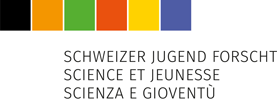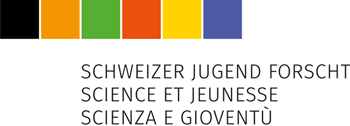Geschichte | Geographie | Wirtschaft | Gesellschaft
Niklas Todt, 2004 | Davos Dorf, GR
Opportunities for climate change education are currently not being utilised enough, even though there is an educational deficit in this field, especially among young people. To address this shortfall, changes in the education system towards an interdisciplinary, problem-oriented learning environment are needed. Following the question of how climate change education can look like, three case studies were elaborated based on a theoretical part regarding its principles, behavioural pedagogical approaches and didactic foundations. The case studies deal with climate change education in specific environments, including a concept for establishing implementable climate change education measures at a high school, one for designing an app to educate the general public about global warming, and a case study on teaching about global warming in two 5th grades.
Introduction
The paper addresses the tangle around climate change education and attempts to dive into the questions: (I) What is climate change education and what is its goal? (II) How can climate change education be implemented effectively? And, (III) how can climate change education promote climate-friendly behaviour?
Methods
The paper is, on the one hand, based on the compilation of a theory section, the synthesis of own concepts and models, and, on the other hand, the utilisation of reflective teaching for the verification and adaptation of the gained insights. Thereby, a teaching unit was prepared on the basis of the established theory, carried out with the findings being interpreted and incorporated into the planning of the next teaching unit. The effectiveness of the lessons was evaluated with the help of classroom observations and questionnaires.
Results
Within the scope of the theoretical part, it can be concluded that there is a deficit regarding the implementation of climate change education. It further appears that the structuring of climate change-related learning units into three content-related parts, the interdisciplinary, problem-oriented and practical design of a learning unit, as well as the incorporation of behaviour-related means to promote climate-friendly behaviour, contribute significantly to achieving the objectives of climate change education. The promotion and support of teachers and educational institutions seems essential for the implementation of climate change education. Furthermore, because of the small sample size, it can be only assumed that parts of the theory were effective in the practical part. Thus, the will to adapt one’s own behaviour seemed to increase in the subject areas studied in depth by the learners, as did their understanding of the subject matter. Interest, concern and emotional involvement, on the other hand, seemed to decrease.
Discussion
Although the practical implementation cannot yield conclusive results, it demonstrated that a learning intervention on global warming can only have the desired effect when implemented over an extended period of time. It seems that the incorporation and consideration of behavioural factors to stimulate climate-friendly behaviour could help to improve learning. The use of reflective teaching as a method seemed appropriate and supportive to the research question. A greater time frame and a broader test group would be necessary for deeper understanding.
Conclusions
The paper demonstrated how learning units on climate change could be shaped. It sought to elaborate on a new perspective and a new approach to the topic and was, to some extent, successful. Since the sample size was small and the time frame relatively limited, many other questions arise in retrospect. Among them are certainly those of realisation and implementation, those of rapid adaptation and continuous further development. It would certainly make sense to implement systematic and ongoing development of the theory by constantly adapting and reviewing teaching units according to the principles of action research on a wider scale.
Würdigung durch die Expertin
Regina Kuratle
Niklas Todt behandelt das Thema «Klimawandel» aus pädagogischer Sicht und skizziert dabei auch neue Pfade. Theoretisch wird das Feld von hinten aufgerollt: Das Wirkungsziel aller Bemühungen ist ein klimafreundliches individuelles Verhalten aller. Eine Annäherung erfolgt sodann anhand dreier Fallstudien. Zum einen knüpft sich N. Todt seine eigene Mittelschule vor, zweitens propagiert er plausible Ideen zu Mobile Apps und drittens erprobte er Unterrichtseinheiten an der Volksschule. Die Ergebnisse sind ermutigend, zeigen aber auch auf, welch grosse Aufgabe der Gesellschaft hier bevorstehen.
Prädikat:
gut
Schweizerische Alpine Mittelschule Davos, Davos-Platz
Lehrer: Dr. Gian Paolo Giudicetti



